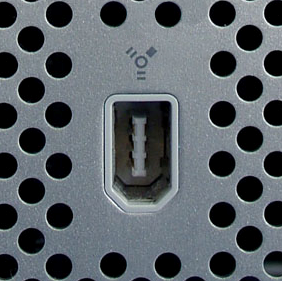What I do is to run the exiftool to strip all the metadata from the image. Next, I check if there are any identifying details in the image like landmarks or background details (e.g. stuff on my whiteboard). And finally I check for the unwanted reflections or for the setup that could be recognised outside the community I share the photo with. Last but not least, I never share a photo in more than one place.
Basically all outdoor images can be automatically geotagged by neural nets developed for this purpose. So you gotta keep it indoor only if you have physical safety concerns.
The more human infrastructure there is, the easier it is to doxx you, but even in the middle of nowhere the neural nets are starting to be very optimized for it. Even the publicly available tools arent too bad and the ones developed for and by the military/feds are probably even better.
The CIA and NSA were able to remotely access any device or social media account without the owner knowing, all the way back as early as the early 2000’s. Edward Snowden revealed this to an apathetic public. If they could do that back then without AI, I can’t imagine what they can do now.
Probably significantly less actually. Because all the encryption and communication protocols are open source and regularily audited, they have become more and more secure. All sides of this conflict have an interest in these systems being secure because everyone indcluding the feds themselves are using them. From looking at actual cases they have to either wait for a zero day to infiltrate a phone remotely or physically compromise it (airport, etc).
Back when every country was developing its own IT systems, it was different, but now everything is globalized. If Russia/Iran/China is suffering from a 0day, chances are the US is suffering from it aswell.
I open the picture on my computer, then screenshot it before uploading.
That removes any association with the original picture without relying on any exif stripping that might miss a hash or weird embedded info.
Now it simply has the metadata from your home conputer.
Print it out, scan it. Screenshot again. Post it from behind 7 proxies
Surely you won’t regret 7 proxies.
Not particularly paranoid. I have clothes with my username on!
I don’t upload photos of myself or my environment to public websites. The only people online who have seen me are two close friends on Discord.
When uploading my art I admit I’m somewhat paranoid about it since my art has been stolen once already, and I like to keep the files associated with my art archived just prior to uploading as a point of reference.
Which means your two close friends & the corporate Discord data harvester.
With friends I can at least tell them to use a privacy-respecting or self hosted option, but I still don’t understand how businesses actively prefer US-based, proprietary services such as Google Meet for meetings. Do they really think Google & others aren’t record & training on their private business meeting data?
I’m not too fussed about those things tbh. If anyone really wanted to doxx me on here they could do that regardless of any images.
I wouldn’t post any pictures of myself to publicly available websites, though; even the one I use on facebook is years old.
I check the metadata my cameras record every now and then. It’s not particularly useful. For screenshots I’ll make sure to not have any names or usernames visible. You can assume every outdoors photo is geolocatable so you can choose what you want to reveal. I’m ok posting a photo from the city center but not from my neighborhood.
I don’t upload photos anywhere public for this reason. For screenshots I just strip the exif data, and if it’s a screenshot that goes from edge to edge of a screen, I resize it so as to not give away info on the size of my screen. I also don’t share the same image in multiple places. If I have any kind of custom theming (fonts or colours) in a screenshot I also usually change it to something more generic, unless the point of the screenshot itself is to showcase the theming.
I don’t upload my own images to public sites.
Sounds perfectly sensible.
Reflections are a big one that is easily overlooked. I typically stare at a picture for a couple minutes looking for tiny reflections that some psychopath on the internet could enhance and glean identity from. I shut geo location on my pictures off so that I don’t have to worry about that, but I recently turned it back on. How do you run that tool on Android?
Thanks! Installed.
AFAIK cameras can be identified by the dust/grain patterns on their lenses. Probably no risk of random users doxxing you through that, but I don’t feel comfortable opening myself up to mass surveillance like that.
deleted by creator
Piss off a basement dweller who makes it his mission to find you in real life and destroy you. That’ll definitely ramp up your precautions again.
What’s on the image? Can you accept to talk about it with your boss?
There is a big difference between a photo of Dr OP giving an invited seminar about some advanced topic, and OP wearing a German WW2 outfit “for Carnaval”
Why would I ever upload a photo of myself, my home, my place of work, or anyone I know to a public website?
There are other things to share.
what’s the last step do for you?
deleted by creator
I always assumed that anything uploaded to Facebook would be found by Meta if it’s uploaded elsewhere and then they’ll have all of the data points from your identity on that platform as well.







